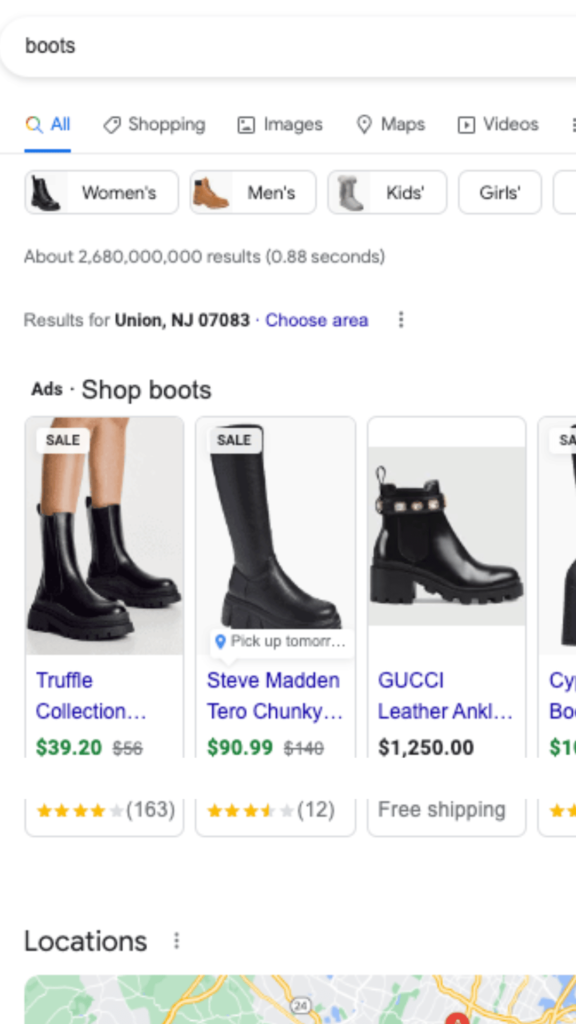It’s no secret that Google is constantly evolving, introducing new features, and refining existing ones to make search even more accurate and powerful. On December 6, 2022, Google released their topics filter feature which has changed the way users search online.
We’ll take an in-depth look at how the new tool works and the steps you need to take to benefit your business.

What is the new Google Topic Filter feature?
Topic filtering is a new feature from Google that helps narrow search results by providing a carousel of adjectives and descriptions that help users narrow down their search. For example, let’s say you want to buy a pair of boots. When you type in and search for “boots,” Google will provide topic filters to transform your query into more specific asks like “women’s boots” or even location-based asks like “boots nearby.” Based on their analysis of real user search patterns, this new topic filter feature allows users to quickly and seamlessly explore the most relevant results to them.
Why is Google rolling out this new feature?
While Google is always looking for ways to make the user experience better, some believe that topic filter update is the search engine giant’s response to recent critiques from users. Despite Google’s recent helpful content update, many users have voiced dissatisfaction with Google’s result quality. New topic filters rapidly streamline the search process, with popular topics related to your search broken down into bite-sized buttons and ready to refine searches with a click. Google has made it easier than ever to narrow down search queries, so users can now find exactly what they are looking for.What does the new Google Topic Filter feature mean for marketers and businesses?
The Google topic filter is changing how users search, and that means changing how your content will be discovered organically. As the topic filters are helping users make more detailed, specific searches; tailoring your content to fit those needs will help you take advantage of the new search feature. Some aspects you need to take into account are:- Are your current content pages created for general searches or specific ones?
- Has impressions and traffic going to more specific content increased?
- Are your pages covering specific topics up to date?
- How can you incorporate more specific search terms into your content plan?


